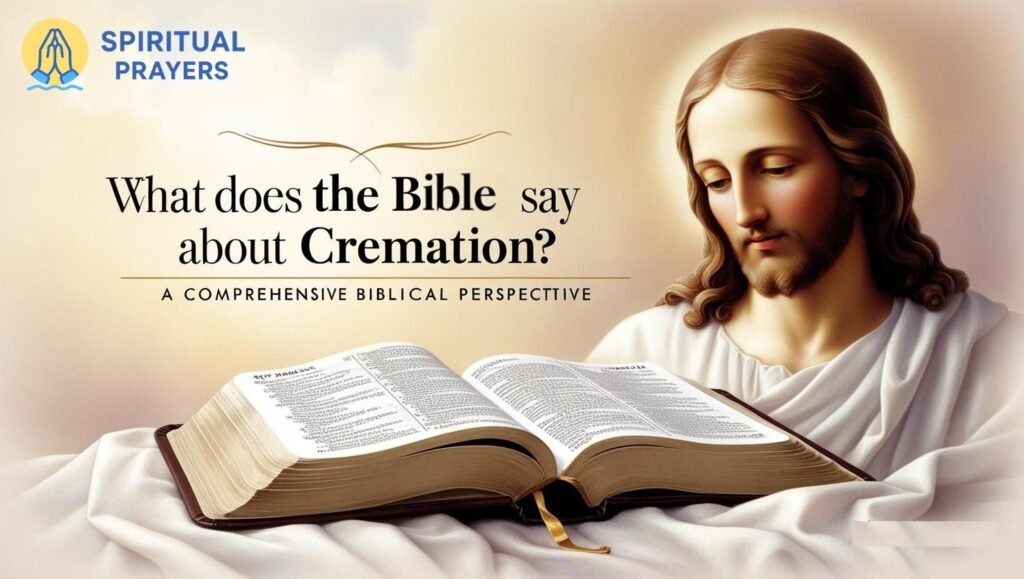
Cremation is a topic that sparks curiosity among Christians seeking to align their end-of-life decisions with biblical principles. While the Bible does not explicitly address cremation, it offers insights into death, burial, and the treatment of the body that can guide believers. This article explores what the Bible says about cremation, examines relevant scriptures, historical practices, and theological perspectives, and provides clarity for those navigating this sensitive decision.
Understanding Cremation in a Biblical Context
Cremation involves reducing a deceased body to ashes through intense heat, often chosen for its affordability, simplicity, or environmental considerations. Unlike traditional burial, which preserves the body, cremation transforms it into a different state. For Christians, the question arises: does this practice align with biblical teachings about the body and the afterlife? To answer, we must consider the Bible’s broader teachings on death, the body, and resurrection.
The Bible emphasizes that humans are created in God’s image (Genesis 1:27) and that the body is a temple of the Holy Spirit (1 Corinthians 6:19-20). These verses underscore the body’s sacredness, prompting some to wonder if cremation dishonors it. However, scripture focuses more on the spiritual significance of life and death than on specific funeral practices, offering flexibility for cultural and personal choices.
Biblical Examples of Burial and Burning
While the Bible frequently mentions burial as the common practice among God’s people, it also references instances of burning bodies, providing context for understanding cremation.
Burial in the Old Testament
Burial was the predominant practice in ancient Israel. Patriarchs like Abraham, Sarah, and Jacob were buried in tombs or caves (Genesis 23:19, 25:9, 50:13). The burial of Jesus in a tomb (Matthew 27:57-60) further reinforces this tradition. Burial symbolized respect for the deceased and, for some, hope in the resurrection. For example, Joseph’s bones were preserved and later buried in Canaan (Exodus 13:19, Joshua 24:32), reflecting a cultural emphasis on bodily preservation.
Instances of Burning in Scripture
The Bible records a few instances where bodies were burned, though not in the modern sense of cremation. In 1 Samuel 31:11-13, the bodies of Saul and his sons were burned by the men of Jabesh-Gilead after being mutilated by the Philistines. This act was likely performed to prevent further desecration, followed by the burial of their bones. Similarly, Amos 6:10 describes burning bodies during a time of plague, possibly for hygienic reasons.
These examples suggest that burning was not a standard practice but occurred in exceptional circumstances, such as preventing dishonor or addressing practical needs. Importantly, the Bible does not condemn these acts, indicating that burning the body does not inherently violate God’s will.
The Case of Achan’s Punishment
In Joshua 7:25, Achan and his family were stoned and burned as punishment for disobedience. This burning was part of divine judgment, not a funeral practice, and does not directly relate to modern cremation. It highlights that burning in scripture often carried a specific purpose, distinct from today’s cremation practices.
Theological Considerations: Does Cremation Affect Resurrection?
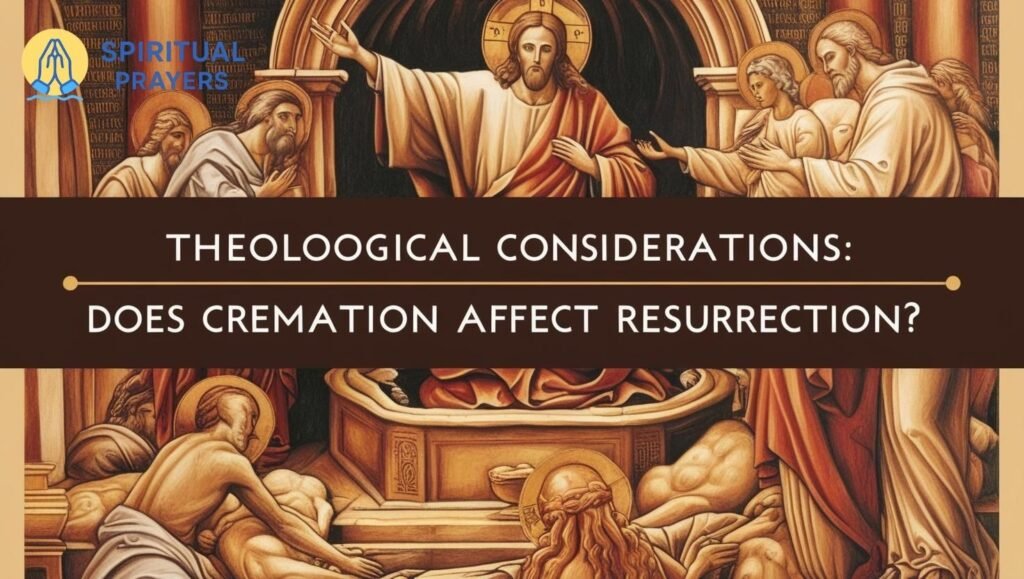
A key concern for Christians is whether cremation impacts the resurrection promised in scripture. The Bible teaches that believers will receive glorified bodies at Christ’s return (1 Corinthians 15:42-44, Philippians 3:21). This resurrection is not dependent on the physical state of the earthly body, as God’s power transcends human limitations.
God’s Power in Resurrection
Scripture affirms that God can restore bodies regardless of their condition. For example, Ezekiel 37:1-14 describes God’s vision of dry bones being restored to life, symbolizing His ability to resurrect. Similarly, those who died at sea, were consumed by animals, or decomposed naturally will be raised (Revelation 20:13). Cremation, which reduces the body to ashes, poses no obstacle to God’s creative power.
The Body’s Temporary Nature
The Bible portrays the earthly body as temporary, destined to return to dust (Genesis 3:19, Ecclesiastes 12:7). Whether through natural decay or cremation, the body undergoes transformation. Paul’s metaphor of the body as a seed planted in the ground (1 Corinthians 15:36-38) suggests that the physical form changes, but God creates a new, glorified body. This theological perspective supports the view that cremation does not hinder God’s plan for resurrection.
Cultural and Historical Context of Cremation
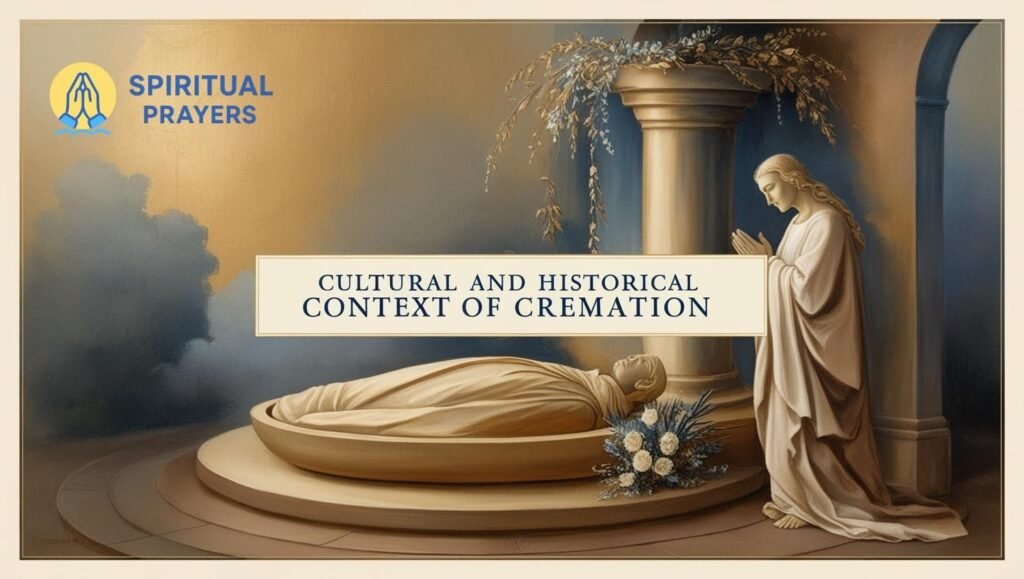
To fully understand the Bible’s silence on cremation, we must consider the cultural and historical context in which scripture was written.
Ancient Near Eastern Practices
In ancient Israel, burial was the norm, influenced by practical and theological factors. Tombs and caves preserved bodies in a dry climate, and burial reflected hope in God’s promises. Neighboring cultures, such as the Canaanites and Greeks, sometimes practiced cremation, but Israelites avoided it to distinguish themselves from pagan rituals, some of which involved burning bodies as offerings to deities (Leviticus 18:21, Deuteronomy 12:31).
Early Christian Practices
Early Christians continued Jewish burial traditions, often placing bodies in catacombs or graves, reflecting their hope in bodily resurrection. Cremation was associated with Roman pagan practices, leading some early church leaders to favor burial. However, as Christianity spread, funeral practices varied, and cremation was not universally condemned.
Modern Christian Perspectives
Today, many Christian denominations accept cremation as a valid option, provided it is conducted with dignity and respect. The Catholic Church, for instance, permits cremation (Canon Law 1176.3, 1997 revision) but emphasizes that ashes should be treated reverently, ideally interred in a sacred place. Protestant denominations generally leave the decision to personal conviction, focusing on the heart’s intent rather than the method.
Practical Considerations for Christians Choosing Cremation
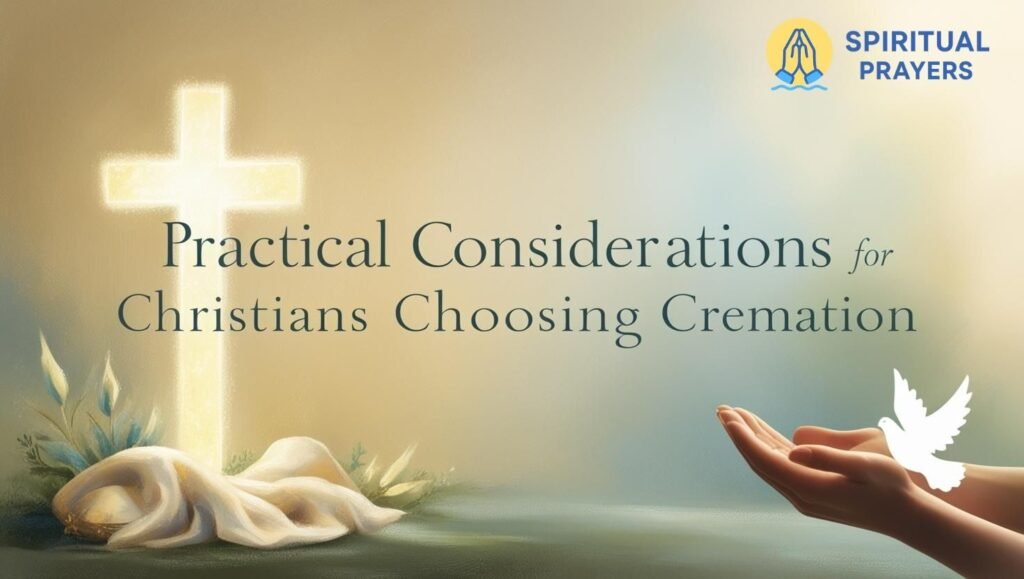
For Christians considering cremation, several factors may influence the decision, including cost, environmental impact, and personal beliefs.
Cost and Accessibility
Cremation is often more affordable than traditional burial, which involves expenses for caskets, plots, and services. In 2025, the average cost of a burial in the U.S. ranges from $7,000 to $12,000, while cremation typically costs $1,500 to $5,000. This financial difference makes cremation appealing for many families.
Environmental Impact
Cremation has a smaller land footprint than burial, as it does not require a cemetery plot. However, it consumes energy and releases emissions, prompting some to explore eco-friendly options like green burials or water-based cremation (aquamation). Christians may weigh these factors in light of stewardship principles (Genesis 2:15).
Honoring the Deceased
Scripture calls believers to honor the deceased (Ecclesiastes 6:3, 2 Samuel 21:12-14). Whether choosing burial or cremation, the focus should be on dignity, respect, and faith. Scattering ashes in a meaningful location, interring them in a columbarium, or keeping them in an urn are all ways to honor the deceased, provided the act reflects reverence.
Common Questions About Cremation and the Bible
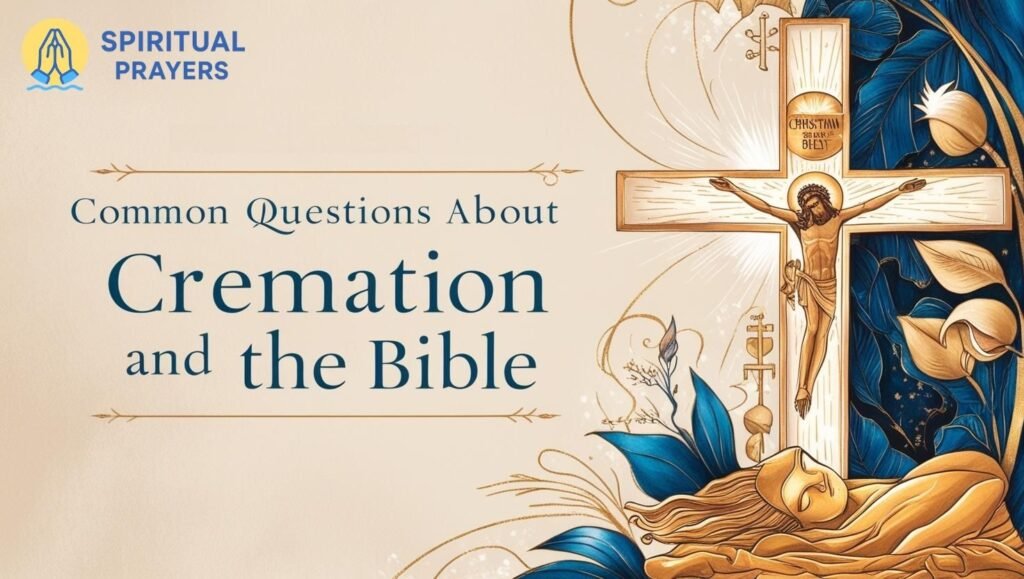
Is Cremation a Sin?
The Bible does not label cremation as a sin. While burial was the common practice, scripture’s silence on cremation and examples of burning bodies suggest it is not inherently wrong. The focus is on the heart’s intent and honoring God (Romans 14:5-8).
Should Ashes Be Scattered?
Scattering ashes is a personal choice, not addressed in scripture. Some Christians prefer interring ashes in a cemetery or church garden to maintain a sacred resting place, while others find scattering meaningful. The key is to act with reverence and prayerful consideration.
How Should Christians Approach Funeral Decisions?
Christians should seek God’s guidance through prayer, consult with trusted spiritual leaders, and consider their family’s needs. Romans 12:1-2 encourages offering our bodies as living sacrifices, and this principle extends to honoring the body in death, whether through burial or cremation.
Conclusion: Making an Informed Decision
The Bible does not explicitly endorse or prohibit cremation, leaving room for personal conviction guided by scripture’s broader principles. Burial was the norm in biblical times, but instances of burning bodies show that alternative practices were not condemned. Theologically, cremation does not affect God’s ability to resurrect believers, as His power surpasses physical limitations. Christians can choose cremation or burial based on practical needs, cultural preferences, and spiritual convictions, ensuring the decision honors God and the deceased.
By exploring scripture, historical context, and modern perspectives, believers can make informed choices that reflect their faith. Whether opting for cremation or burial, the focus should be on dignity, respect, and trust in God’s promise of resurrection.